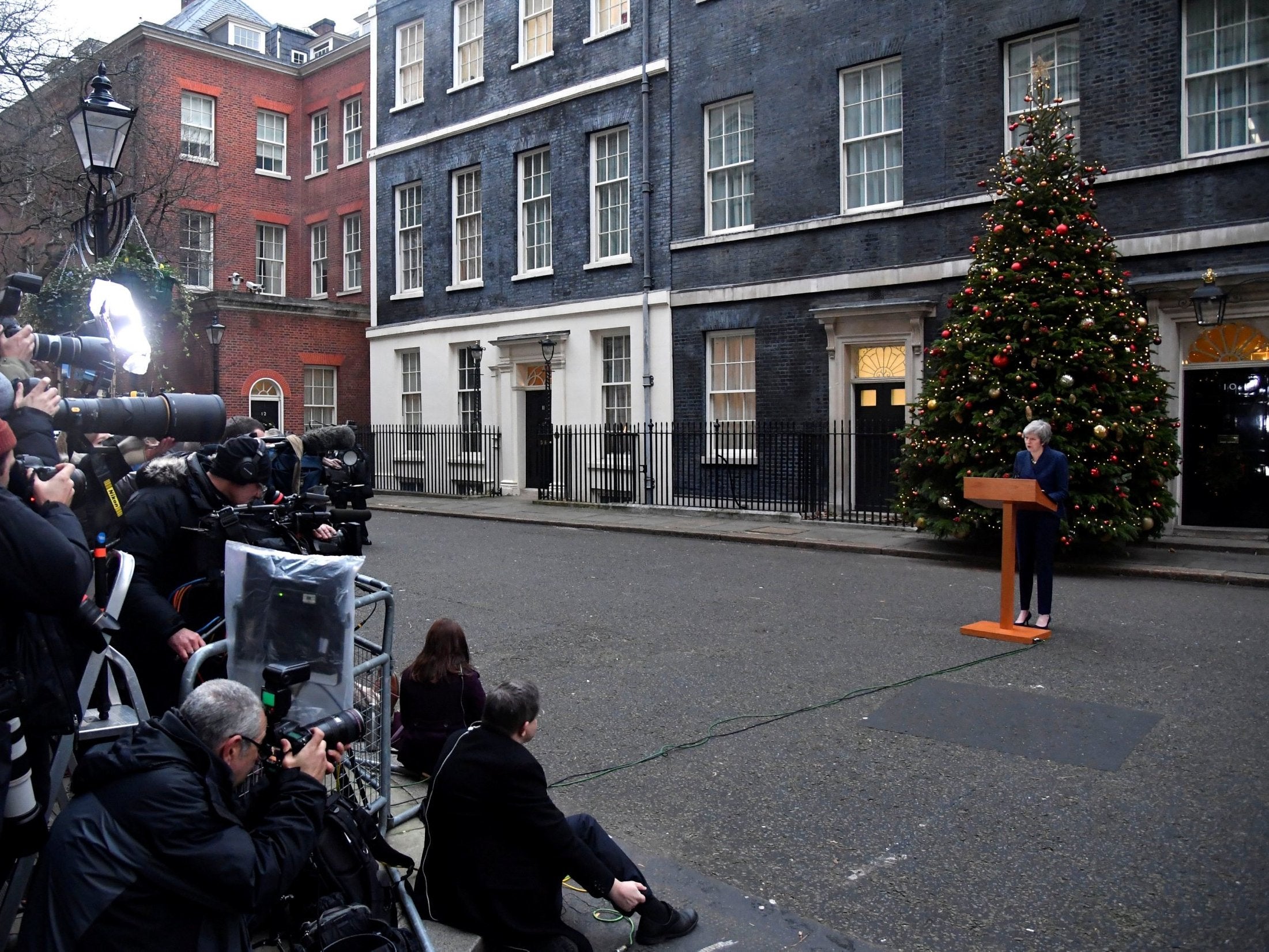Politicians like Theresa May are seeking to control the news agenda by making unchallenged pronouncements
The age of political deference is over but MPs are finding new ways to avoid the media glare, says Will Gore


Once upon a time, politicians expected a certain deference from journalists. They largely got it too, with questions asked almost apologetically – and certainly not on the doorstep at weekends. Respect came with the job.
The relationship between politicians and the media has plainly changed since the submissiveness of the post-war years, shaped by scandal, changing social mores, and technology. Tabloid exposes and shouty headlines of the 1980s left parliament unsettled, arguably provoking the spin-dominated era of Tony Blair, Alastair Campbell et al, as politicians sought to regain control of the narrative.
The pendulum has swung back and forth again in the years since: the damning MPs’ expenses scandal put politicians on the defensive; then the Leveson Inquiry forced the media onto the back foot. Each side seeks constantly to wrest the initiative.
24-hour news cycles have removed any notion that politics, and its practitioners, can have time away from the spotlight. If the Sunday papers don’t get you, and if you avoid a monstering by an opponent on the Andrew Marr Show, there is still Sky News and any number of news websites waiting to pounce.
There is, in short, no rest for the wicked – or for the rest of them (on both sides). And for a time, that appeared to be working in the favour of journalists, able to harry surprised politicians into missteps or unexpected pronouncements.
But are politicians now getting their own back? Today, in response to the announcement that she would at last face a confidence vote from her MPs, Theresa May stepped into Downing Street and spoke briefly to the waiting press pack to make clear she stood “ready to finish the job”. There was nothing much of note in the speech and there was no opportunity for questions: it was simply a way to demonstrate defiance and ensure that the appearance would dominate news headlines for the hours leading up to PMQs.
Where social media posts are transient even to the person tapping them out “transparency” is really no more than a mirror
The prime minister has done this before: holding impromptu press conferences that involve nothing but a platitude-filled monologue, and doing so at times that ensure news bulletins will lead on her remarks. For a politician facing criticism from all sides, it is a cunning move.
David Cameron was a dab hand at it, exiting cars at international summits, answering an unasked question in front of the cameras to make whatever point he wanted to appear on TV, then turning on his heel to enter the event before any journalist had a chance to intervene with a follow-up point.
Donald Trump, meanwhile, has channelled his interaction with the public through even more immediate means – notably the lens of Twitter, which brooks plenty of argument, but which enables a powerful individual to change the news agenda in 280 characters.
The Trumps of this world argue that such direct communication improves transparency, even honesty (of sorts); when allied to the kind of antipathy that the president has for the “fake news media”, it can certainly be a powerful tool.

But in this context, where social media posts are transient even to the person tapping them out – and even in the example of a monologue to camera without permitting subsequent questions – “transparency” is really no more than a mirror. There is no real accountability.
Politicians should run the country; journalists should not let them control the news agenda.
Join our commenting forum
Join thought-provoking conversations, follow other Independent readers and see their replies
Comments
Bookmark popover
Removed from bookmarks